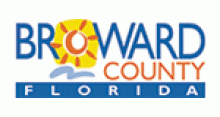Rochester Pursues Business Case Study for Muni Network in Minnesota
The Rochester City Council recently voted unanimously to move forward with a study on the possibilities of publicly owned broadband in this southeastern city. Rochester will then decide whether to move forward with bids to form a public-private partnership for a network, or pursue another path.
After receiving dozens of calls from his constituents, City Councilman Michael Wojcik is asking his colleagues to consider a municipal network. Rochester’s area holds a population of about 110,000, and is home to the world-famous Mayo Clinic.
According to the Rochester Post-Bulletin, Charter Communications operates its cable TV and Internet services under a franchise agreement with the city. That agreement is up for a renewal on March 31.
Wojcik said his constituents have been angered over issues such as digital box fees, but most of the complaints are about broadband service, which Wojcik said is essential. He said Charter's recent price increase for stand-alone broadband from $55 to $60 per month makes the service unobtainable for a percentage of area families with children in school.
"Broadband is key for information for a lot of people, particularly younger generations, and going forward, it becomes more and more critical," he said.
In 2010 Wojcik asked the council to investigate options for publicly owned infrastructure, but the measure did not advance. Wojcik says he hopes that citizen outrage with poor Charter service and contract negotiations will encourage city council members to take action.
The Council invited Chris to offer expert opinion. KIMT TV covered the decision and spoke with him after the meeting:



